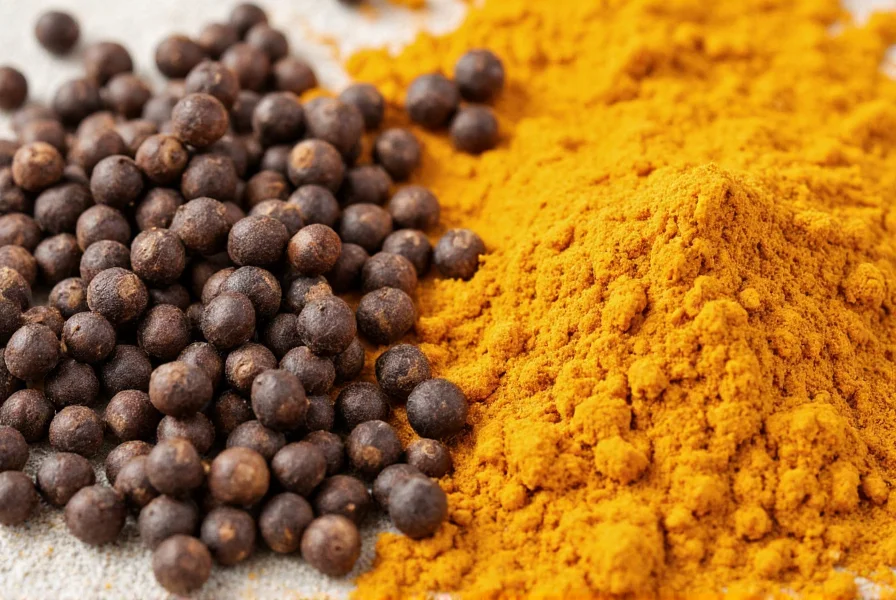Pepper isn't just a kitchen staple for flavor enhancement—it's a powerhouse of health-promoting compounds. The humble peppercorn, particularly black pepper, contains piperine, a bioactive compound responsible for many of its therapeutic properties. Research shows that piperine significantly increases the bioavailability of essential nutrients and other beneficial compounds like curcumin from turmeric, making it a valuable addition to your daily diet.
Unlike many trendy superfoods, black pepper has stood the test of time across multiple traditional medicine systems. Ancient Ayurvedic practitioners recognized its digestive benefits centuries before modern science confirmed these properties. Today, clinical studies validate what traditional healers have known: incorporating quality black pepper into your meals delivers measurable health advantages beyond simple flavor enhancement.
The Science Behind Pepper's Health Benefits
Black pepper's primary active component, piperine, constitutes approximately 5-9% of dried black pepper by weight. This alkaloid compound interacts with multiple biological pathways that influence human health. When consumed with other foods and supplements, piperine can increase nutrient absorption by up to 2,000%, making it one of nature's most effective bioavailability enhancers.
| Pepper Compound | Concentration in Black Pepper | Primary Health Benefit |
|---|---|---|
| Piperine | 5-9% | Nutrient absorption enhancement |
| Volatile Oils | 2-5% | Digestive stimulation |
| Antioxidants | 1-3% | Cellular protection |
Top 7 Evidence-Based Pepper Perks
1. Dramatically Improves Nutrient Absorption
When you combine black pepper with other nutrient-dense foods, you significantly increase your body's ability to utilize those nutrients. Studies demonstrate that piperine can boost curcumin absorption from turmeric by 2,000%. This same mechanism applies to selenium, beta-carotene, and other vital compounds. For maximum benefit, always pair black pepper with turmeric-containing dishes or supplements.

2. Supports Healthy Digestion
Black pepper stimulates digestive enzymes throughout your gastrointestinal tract. Research published in the Journal of Ayurveda and Integrative Medicine found that piperine increases hydrochloric acid production in the stomach, improving protein breakdown and reducing bloating. This digestive enhancement makes black pepper particularly valuable for individuals with slow digestion or age-related enzyme deficiency.
3. Powerful Anti-Inflammatory Effects
Chronic inflammation underlies many modern diseases, and black pepper offers natural anti-inflammatory support. A 2013 study in Planta Medica demonstrated that piperine inhibits key inflammatory pathways at the cellular level. Regular consumption may help reduce markers of inflammation, potentially lowering risk for conditions associated with chronic inflammation.
4. Enhances Metabolic Function
Emerging research suggests black pepper may support healthy metabolism. Animal studies indicate piperine influences genes related to fat metabolism, potentially reducing fat accumulation. While human studies are still developing, the thermogenic properties of black pepper make it a valuable component of metabolic health strategies.
5. Provides Antioxidant Protection
Black pepper contains multiple antioxidants that combat oxidative stress. These compounds neutralize free radicals that damage cells and contribute to aging. The antioxidant profile in black pepper works synergistically with other dietary antioxidants, creating a comprehensive defense system against cellular damage.
6. Supports Respiratory Health
Traditional medicine systems have long used black pepper for respiratory conditions. Modern research confirms that piperine helps break down mucus and reduce congestion. The warming properties of black pepper make it particularly valuable during cold and flu season, providing natural relief from respiratory discomfort.
7. May Improve Brain Function
Preliminary research suggests piperine may support cognitive health by inhibiting enzymes that break down neurotransmitters. While more human studies are needed, the potential neuroprotective effects of black pepper represent an exciting area of ongoing research.
Different Pepper Varieties and Their Unique Benefits
While black pepper delivers the most concentrated piperine content, other pepper varieties offer distinct advantages:
- Black pepper: Highest piperine concentration, strongest bioavailability enhancement
- White pepper: Milder flavor, still contains beneficial compounds but lower piperine levels
- Green pepper: Contains different phytochemicals with unique antioxidant properties
- Pink pepper: Not true pepper but offers complementary health benefits
For maximum health benefits, choose freshly ground black pepper over pre-ground varieties. The essential oils and piperine degrade over time when exposed to air, so grinding peppercorns immediately before use preserves maximum potency.
Practical Ways to Incorporate Pepper Perks Into Your Diet
Maximizing the health benefits of pepper requires strategic incorporation into your daily meals:
- Add freshly ground black pepper to turmeric-based dishes or golden milk
- Include in salad dressings with healthy fats for enhanced absorption
- Sprinkle on roasted vegetables before serving
- Add to smoothies containing antioxidant-rich ingredients
- Combine with iron-rich plant foods to improve iron absorption
Considerations and Potential Side Effects
While black pepper offers numerous benefits, certain considerations apply:
- Excessive consumption may cause gastrointestinal discomfort in sensitive individuals
- May interact with certain medications due to enhanced absorption
- Quality matters—choose organic, non-irradiated peppercorns when possible
- People with ulcers or severe acid reflux should moderate intake
The typical dietary amount of black pepper (1/4 to 1/2 teaspoon daily) provides significant benefits without adverse effects for most people. If you take prescription medications, consult your healthcare provider about potential interactions with black pepper's absorption-enhancing properties.
Conclusion: Making Pepper Work for Your Health
Black pepper represents one of nature's most accessible and scientifically supported health enhancers. Its ability to transform the nutritional value of other foods makes it uniquely valuable in any health-conscious diet. By understanding how to properly select and incorporate black pepper into your meals, you can harness these pepper perks to support digestion, reduce inflammation, and maximize nutrient absorption. The key lies in consistent, moderate use paired with other nutrient-dense foods for synergistic health benefits.
Frequently Asked Questions
How much black pepper should I consume daily for health benefits?
For general health benefits, 1/4 to 1/2 teaspoon of freshly ground black pepper daily provides optimal benefits without potential side effects. When combining with turmeric, use approximately 1/20th the amount of black pepper to turmeric (e.g., 1/4 teaspoon black pepper with 1 teaspoon turmeric) to maximize absorption.
Can black pepper really improve nutrient absorption?
Yes, multiple studies confirm that piperine, the active compound in black pepper, significantly enhances nutrient absorption. Research shows it can increase curcumin absorption by up to 2,000% and improves absorption of selenium, beta-carotene, and other nutrients by 30-60%. This effect occurs through piperine's influence on digestive enzymes and intestinal permeability.
Does the type of pepper matter for health benefits?
Yes, black pepper contains the highest concentration of piperine (5-9%), making it most effective for enhancing nutrient absorption and providing anti-inflammatory benefits. White pepper has lower piperine content, while green and pink peppers offer different phytochemical profiles. For maximum health benefits related to nutrient absorption, black pepper is superior to other varieties.
Can I get the same benefits from pre-ground pepper?
Freshly ground black pepper delivers significantly more benefits than pre-ground varieties. The essential oils and piperine degrade when exposed to air, light, and moisture. Pre-ground pepper loses up to 90% of its volatile compounds within 15 days of grinding. For maximum health benefits, grind peppercorns immediately before use and store whole peppercorns in an airtight container away from light.
Are there any medication interactions with black pepper?
Yes, black pepper's ability to enhance absorption can affect how your body processes certain medications. It may increase the absorption of drugs like cyclosporine, phenytoin, and propranolol, potentially leading to higher than intended blood levels. If you take prescription medications, particularly those with narrow therapeutic windows, consult your healthcare provider before significantly increasing black pepper consumption.











 浙公网安备
33010002000092号
浙公网安备
33010002000092号 浙B2-20120091-4
浙B2-20120091-4